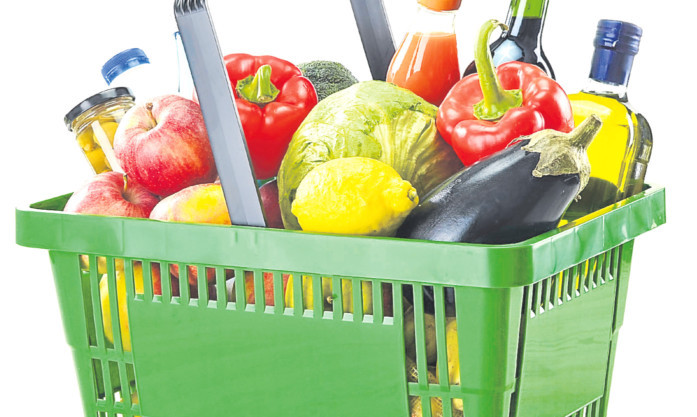
Shopping baskets are the latest “carriers” found to harbour potentially deadly food bugs.
Two of the six major supermarkets investigated by The Sunday Post had baskets with bugs that could trigger food poisoning outbreaks.
It comes two weeks after we revealed the potential killers lurking in “bags for life”.
A forthcoming 5p tax is intended to make millions of us use them rather than free disposable ones.
Following our damning probe, which made headlines worldwide, concerns about baskets were raised by worried readers.
We set out to check those concerns and found evidence of contamination that left health experts deeply worried.
This week we took samples from baskets at Morrisons, Tesco, Lidl, Aldi, Asda and Sainbury’s.
In two of the giants the baskets were of the traditional wire type, while in the four others they were the increasingly common hard plastic variety.
They were analysed at Glasgow Caledonian University’s School of Health and Life Sciences.
The total bacterial count in the samples tested was particularly high at Asda, Lidl and Aldi.
Yeast and moulds that experts warn can make food “go off” were present in the samples from Morrisons, Lidl and Aldi.
But the real concern was over the levels of coliforms found.
Shockingly, baskets at two chains, Lidl and Asda, were found to contain the gut bacteria which are known to readily cause food poisoning.
“The presence of coliforms is particularly bad,” said Professor Kofi Aidoo, a leading expert on bacterial toxins and food-borne diseases. “These are organisms only present in human and animal intestines. I was surprised by the high levels of contamination.”
Prof. Aidoo was especially worried by contamination levels present in the hard plastic baskets.
“Both wire and plastics showed contamination,” said Professor Aidoo. “But plastics are more prone to harbouring organisms.”
A spokesman for Lidl said: “We are concerned by the findings of this test. We are now conducting a full investigation into the matter.”
George Inglis of Houston, Renfrewshire, was one worried reader who contacted us.
“The bottoms of most of the plastic shopping baskets I’ve used recently have been disgusting,” said George.
Prof. Aidoo said ready-to-eat food such as fruit should be totally protected from contact to prevent illness. He also raised concerns over the cleanliness of trolleys.
Those worries are mirrored by a major US study which found “far greater” numbers of bacteria on trolleys than in public toilets. Coliforms were on 72% of trolleys.
“Shopping carts appear to be one of the most bacterially contaminated objects the general public may come into contact with on a regular basis,” said Professor Charles Gerba, of the University of Arizona.
Leading microbiologist Professor Hugh Pennington said: “I always assume that a supermarket basket will have bugs on it.
“Baskets should be kept in a reasonable state. It is only a theoretical risk.”

Enjoy the convenience of having The Sunday Post delivered as a digital ePaper straight to your smartphone, tablet or computer.
Subscribe for only £5.49 a month and enjoy all the benefits of the printed paper as a digital replica.
Subscribe